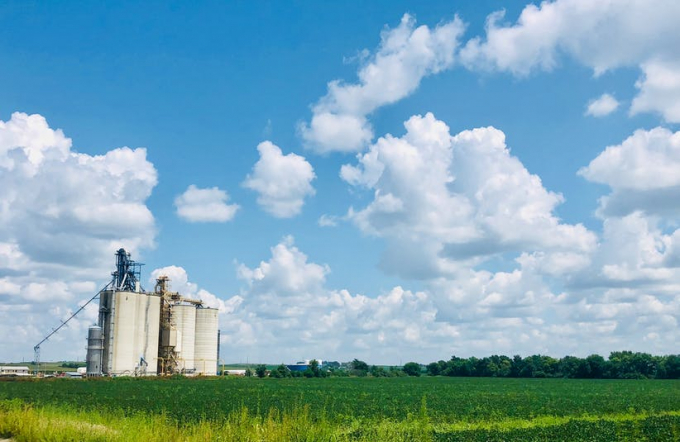June 24, 2025 | 04:25 GMT +7
June 24, 2025 | 04:25 GMT +7
Hotline: 0913.378.918
June 24, 2025 | 04:25 GMT +7
Hotline: 0913.378.918

Grain farmers will meet with the officials from the Minnesota Department of Agriculture this week to discuss the effect of the bankruptcy of Fridley-based Pipeline Foods. Photo: ST
The Minnesota Department of Agriculture will hold a meeting for grain sellers and producers this week to try and help them recoup money owed by Pipeline Foods LLC after it abruptly filed bankruptcy.
Pipeline filed for chapter 11 protection earlier this month, citing "financial distress" caused by the COVID-19 pandemic and its debt obligations.
The Fridley-based organic supply chain operator's primary place of business is Minnesota, but it filed for bankruptcy in Delaware where it is incorporated.
Both the bankruptcy and the fact that it was filed out of state makes it more difficult for local growers to recover the money owed them by Pipeline, the Agriculture Department said.
"It complicates the fact with this bankruptcy being filed in Delaware," said Doug Spanier, attorney for the Minnesota Department of Agriculture. "There are some legal protections producers have but it's very time-sensitive. You can't wait long on this stuff."
When the state licenses a grain buyer or warehouse, it requires the operator to buy a bond — ranging form $10,000 to $500,000 — to insure payment to producers.
Typically, when a grain elevator fails to pay sellers for crops delivered to a storage facility, the state will pull its license, close the facility and sell its inventory. The state will then use that money to pay back farmers who have valid claims. If that's not enough to cover the payments, the state will use the bonds.
But now that the company is going through bankruptcy proceedings, and with every action needing the bankruptcy judge's approval, there's very little the state can do on behalf of producers.
The bankruptcy judge did approve Pipeline's request to complete its payroll obligations for its 85 employees, 68 based in the U.S., according to court records.
In his 25 years with the department, Spanier said he's rarely seen a company file bankruptcy out of state.
"At this point, it makes things a little more difficult for us," Spanier said. "We can't represent farmers out in Delaware, that's not our job, but we can give them the information they need."
The state is hosting an online informational meeting for affected producers on Wednesday at 1 p.m.
Pipeline is akin to a startup within the food supply chain system, having just started operations in 2017. The company, founded by three veterans of the industry with the financial backing of private equity, tried to rapidly build out a network of grain elevators in the Midwest and Canada for receiving organic crops.
Its leaders touted a desire to have a wide enough network to be a convenient and competitive option.
In 2019, Pipeline bought Edina-based SunOpta's corn and soybean unit for $66.5 million. SunOpta and its lawyers did not respond to requests for comment.
According to bankruptcy filings, Pipeline's assets are estimated to be worth between $10 million and $50 million, with liabilities of between $50 million and $100 million.
Erin Heitkamp, Pipeline's senior vice president, did not respond to a request for comment.
Cashton Farm Supply, located just east of La Crosse, Wis., is one of the largest buyers of organic grains used in animal feed. The owner, Ernie Peterson, said his company made a few purchases from Pipeline in the fall and was sad to hear about the bankruptcy.
"It's too bad about Pipeline. People in organic really want to work together and help each other," Peterson said. "It kind of leaves a black eye on the organic specialty industry. There are people who are going to get hurt in this ... The customers were farmers. They weren't large corporate customers."
In a press release announcing the bankruptcy, Pipeline's chief executive Anthony Sepich —who joined the company in 2019 — said, "We believe that a bankruptcy filing and a potential sale of the business, portions of the business, and certain of its assets is the best path forward to unlock value for the benefit of all creditors."
None of the large creditors contacted by the Star Tribune were willing to speak on the record.
"(Producers) are going to be affected by it, which is why it's so important to get this information out to them so they know what to do," Spanier said, "because the producers are going to have to get attorney representation in Delaware to go through this complicated process. It's not a simple thing."
(Startribune)

(VAN) Poultry production in Poland, which has only started recovering from devastating bird flu outbreaks earlier this year, has been hit by a series of outbreaks of Newcastle disease, with the veterinary situation deteriorating rapidly.

(VAN) Extensive licensing requirements raise concerns about intellectual property theft.

(VAN) As of Friday, a salmonella outbreak linked to a California egg producer had sickened at least 79 people. Of the infected people, 21 hospitalizations were reported, U.S. health officials said.

(VAN) With the war ongoing, many Ukrainian farmers and rural farming families face limited access to their land due to mines and lack the financial resources to purchase needed agricultural inputs.

(VAN) Vikas Rambal has quietly built a $5 billion business empire in manufacturing, property and solar, and catapulted onto the Rich List.

(VAN) Available cropland now at less than five percent, according to latest geospatial assessment from FAO and UNOSAT.

(VAN) Alt Carbon has raised $12 million in a seed round as it plans to scale its carbon dioxide removal work in the South Asian nation.